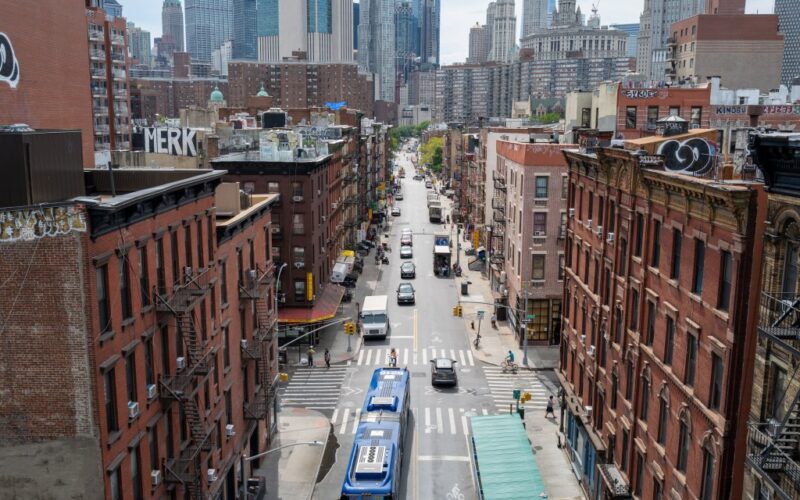As Democrats rightly celebrated major election night victories, it’s worth pausing on a quieter but equally consequential win. New York City voters just approved ballot proposals 2–5, a slate of housing reforms that may do more to secure the city and state’s political power than any single campaign.
The national spotlight has been on mid-decade redistricting in states like Texas and California. But there’s a more fundamental kind of redistricting underway, the one driven by population growth and housing supply. If New York can’t build enough homes, it can’t keep enough people. And if people can’t afford to live here, the state loses representation, resources, and power.
These housing reforms don’t just build homes, they build staying power. They address the structural forces that determine where Americans live, how they’re counted, and how political power is distributed.
If New York can’t keep residents, it risks losing another congressional seat in 2030, just as it did in 2020, missing the cutoff by a mere 89 people. Meanwhile, metros in Texas, Florida, and Georgia are adding millions. Without policies that let people stay and grow here, blue states will continue to shrink in political influence.
That’s why the passage of these ballot proposals is so important. Most redistricting battles are fought at the state level. But cities have a role to play too. They can fight by building more, lowering the cost of living, and making it possible for people to stay. Every apartment that’s affordable to a working family is, indirectly, an act of democratic preservation. It keeps population and political representation from drifting to places that build faster and cheaper.
The newly passed measures are a powerful counterpunch, streamlining the creation of both affordable and market-rate housing. Together, they attack the red tape that has made New York one of the hardest places in America to build, and have driven housing prices sky-high.
The data tells a clear story: the city’s latest Housing and Vacancy Survey shows a 1.41% rental vacancy rate, the lowest since 1968. For lower-cost units, it drops below half a percent. Building permits fell 76% in 2023, even as completions briefly peaked at 33,974 in 2024, a short-lived boom that can’t continue without new approvals.
That shortage doesn’t just hurt renters. It drives people out, to Austin, Nashville, and Raleigh, cities that have liberalized their zoning and embraced growth. Each moving truck south isn’t just an economic loss for New York, it’s a small transfer of political representation.
And while the usual NIMBY groups opposed the reforms, the coalition that carried them over the finish line was broad, pragmatic, and hopeful. Mayor Adams, the leaders of his Charter Revision Commission, organizations like Open New York, and political leaders such as Amit Bagga deserve enormous credit for pushing this effort forward and making the case that housing is democracy policy.
Even more notable, this was an issue that can unite the Democratic Party. It saw support from business groups and moderates like Gov. Hochul to progressive icons like our future mayor, Zohran Mamdani. That kind of coalition is rare in today’s politics, and it’s a reminder that solving the housing crisis isn’t just good economics, it’s good democracy.
Housing growth isn’t a neighborhood issue, it’s a citywide issue. When one district blocks new homes, the pressure shifts somewhere else, driving up prices everywhere. Teachers, nurses, and delivery workers can’t live near their jobs, young families can’t find space to stay, the city’s creative energy drains away.
Beyond the five boroughs, the stakes are unmistakably national. Congressional apportionment is a zero-sum contest. Every seat preserved in blue metros helps balance gains in fast-growing red states. But this isn’t just about partisanship, it’s about preserving diverse, dynamic, opportunity-driven cities as engines of the country’s future.
Other blue jurisdictions should take note. California has made progress with ADU legalization and duplex zoning. Massachusetts and Washington State have followed suit. Now New York has shown that voters themselves will endorse reforms that make housing abundance a civic priority.
The path ahead won’t be simple, construction costs, financing, and local resistance remain real hurdles. But New York’s vote reframes the debate. Housing policy isn’t just economic policy. It’s population policy. It’s democracy policy.
So while Democrats celebrate this month’s electoral wins, they should also celebrate this one. Because building more homes isn’t just about affordability, it’s about keeping America’s blue cities alive, competitive, and politically relevant.
New York just reminded the country that the fight for democracy doesn’t only happen at the ballot box. Sometimes, it happens in the zoning code.
Young is a former senior aide to Sen. Chuck Schumer, Mayor Adams and other business and political leaders.








